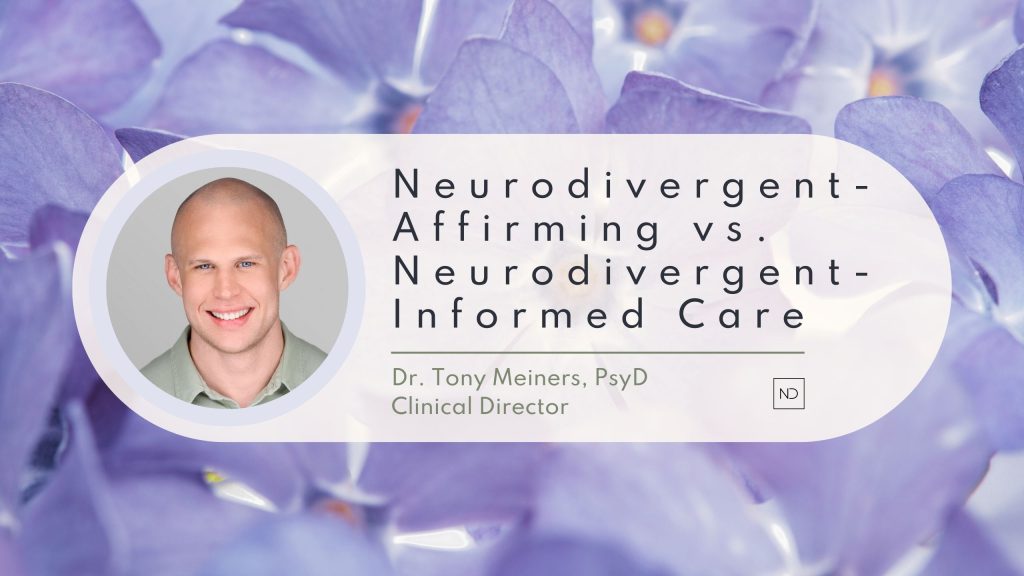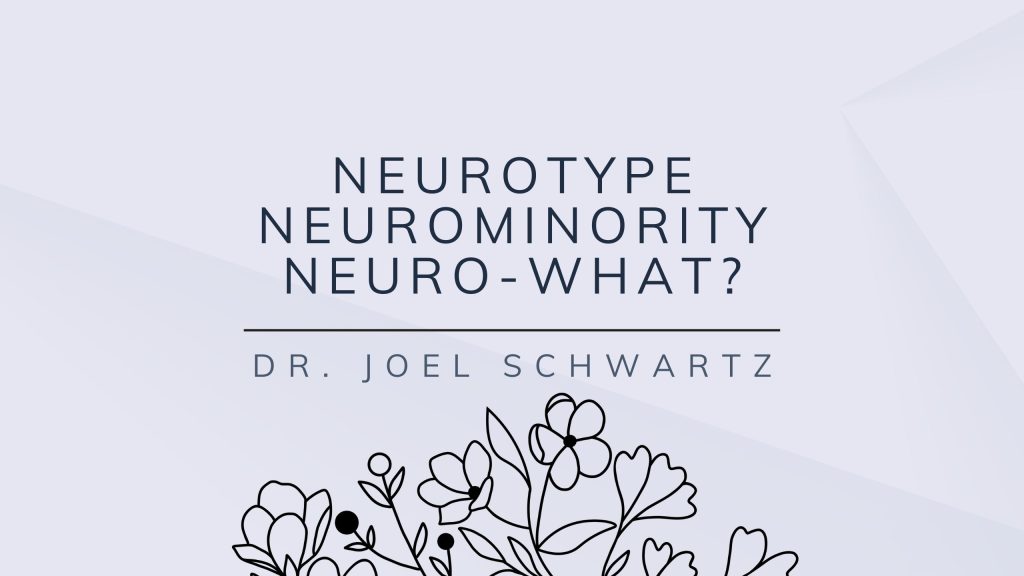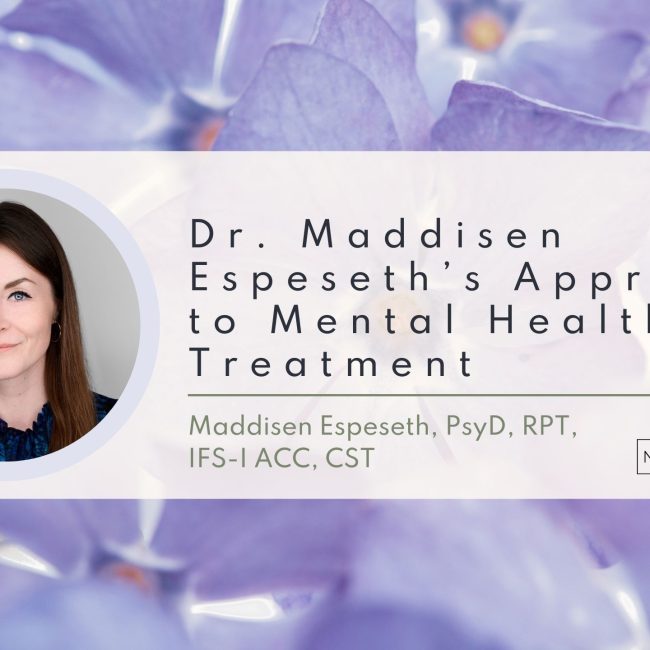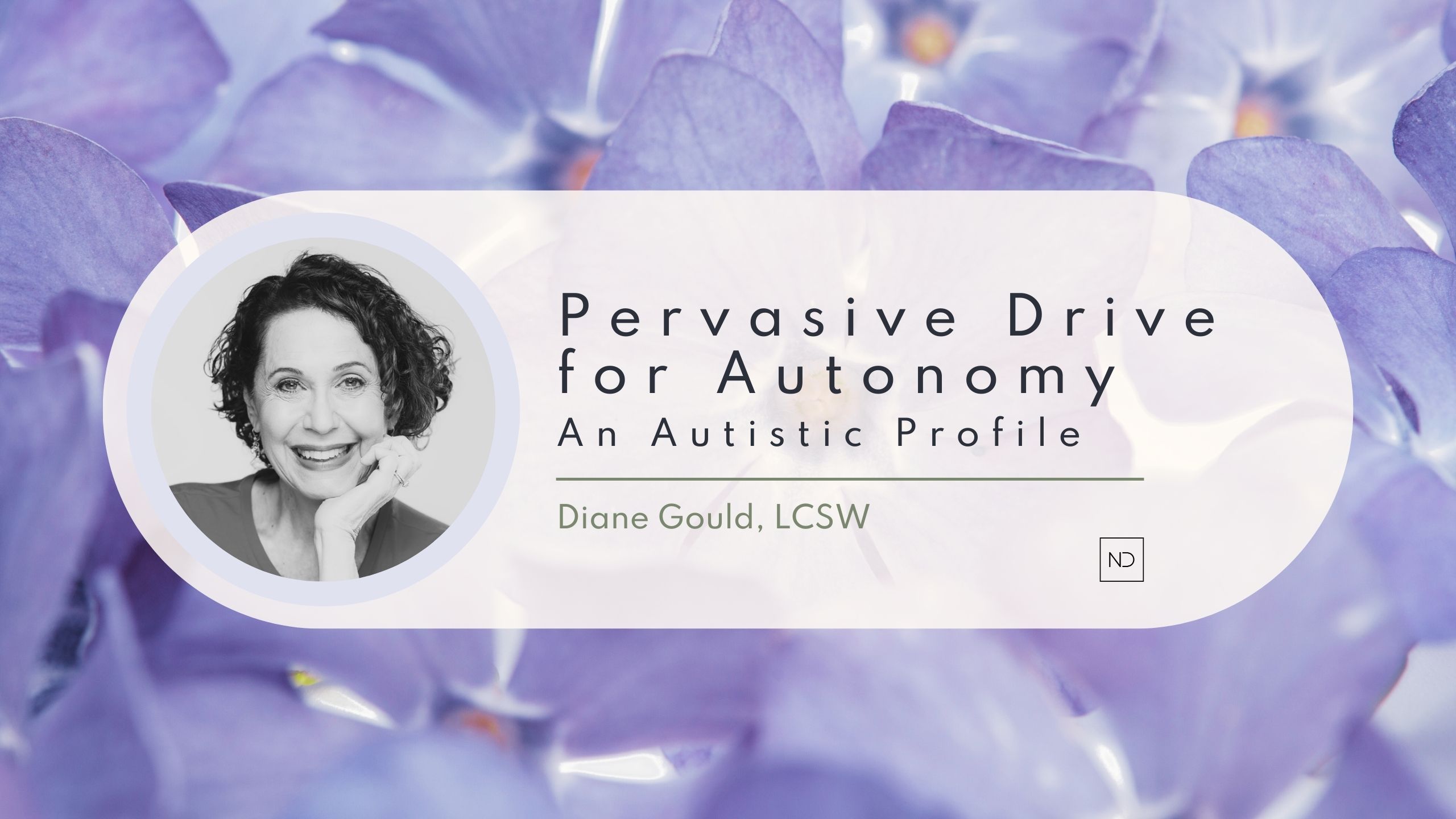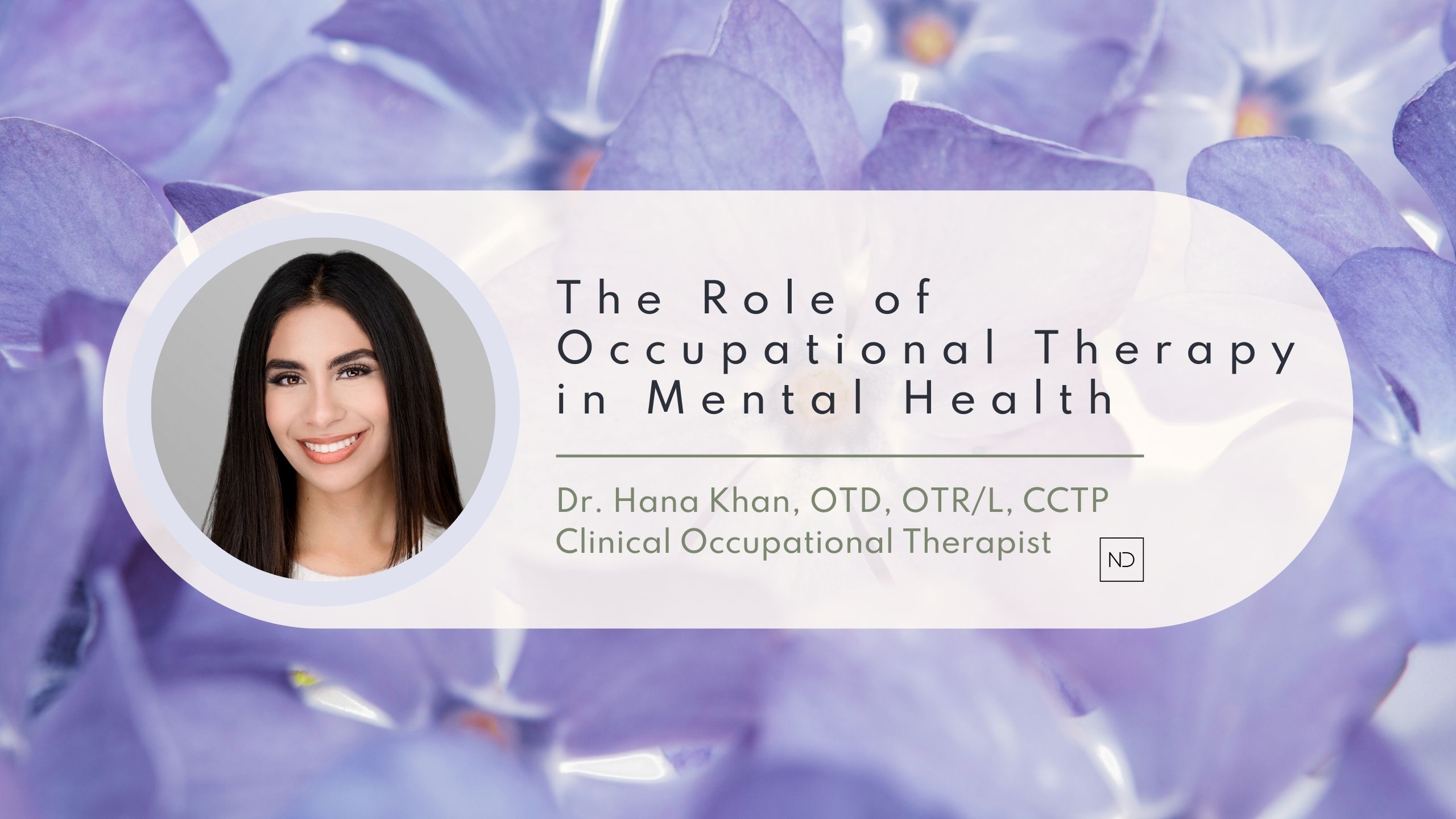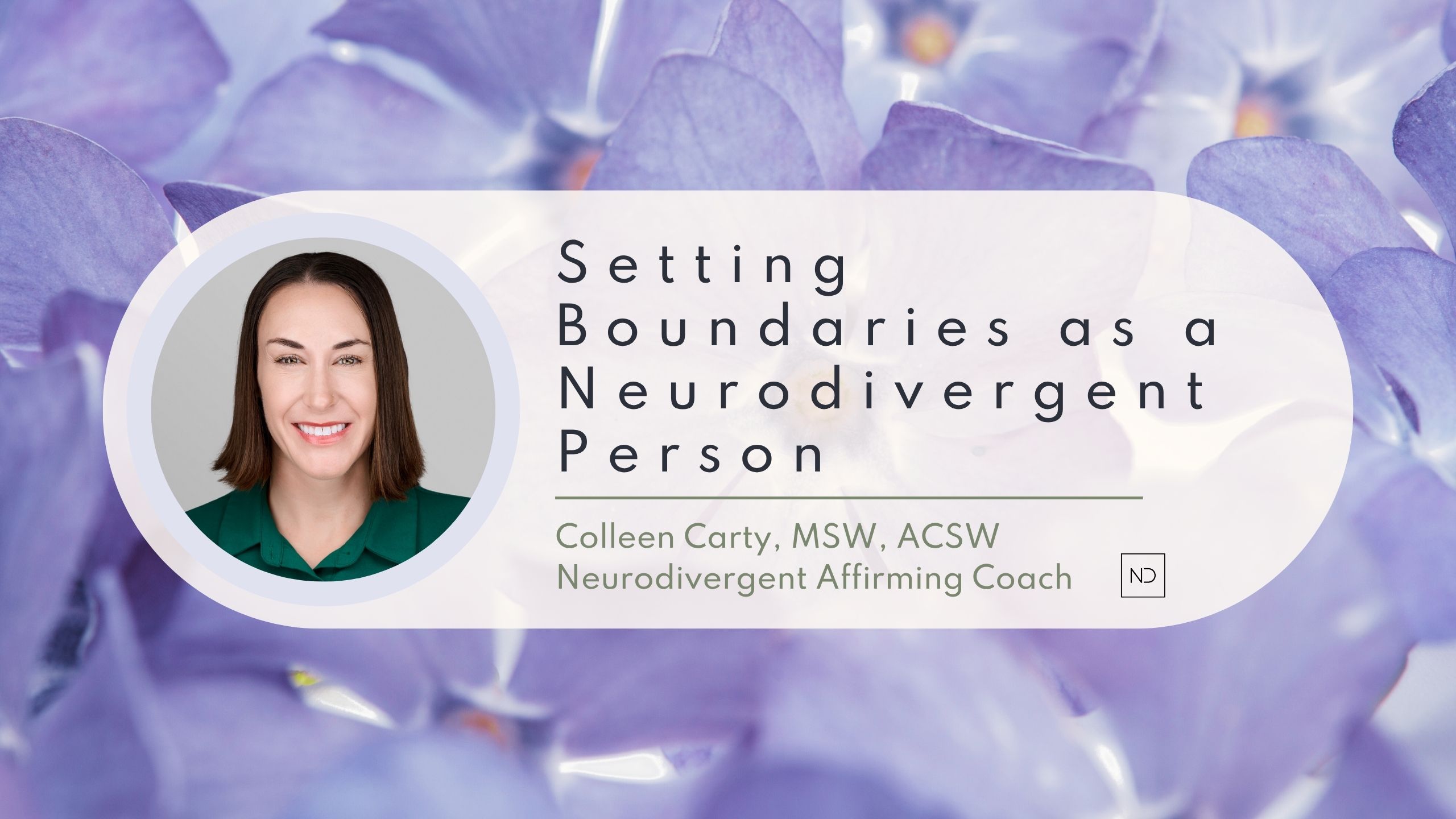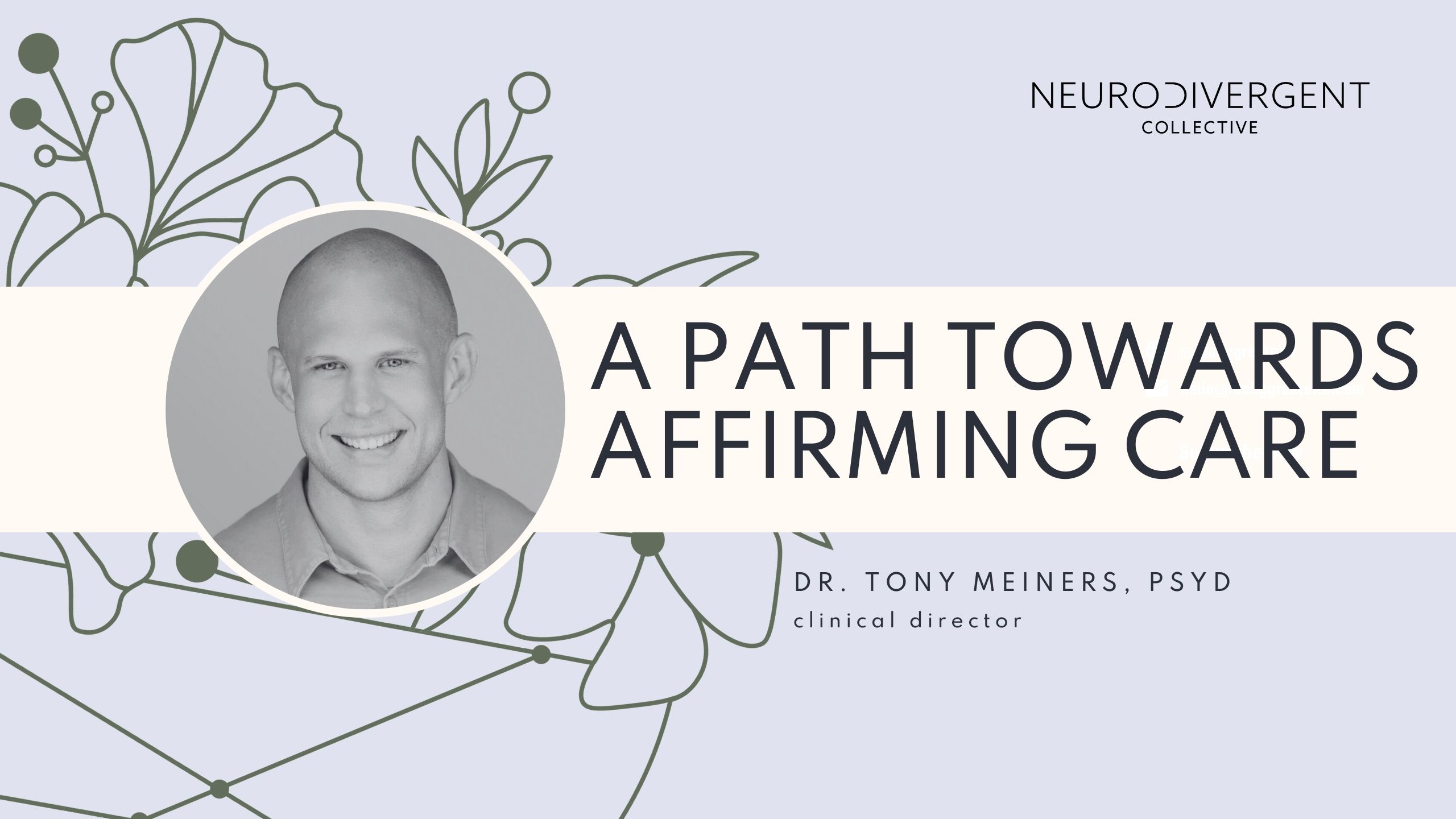
A Path Towards Affirming Care
INTERVIEWING: Dr. Tony Meiners, PsyD :: Clinical Director
WHAT IS THE HISTORY + EVOLUTION OF AFFIRMING CARE FOR NEURODIVERGENT PEOPLE?
Anytime that we are talking about affirming care, we have to understand the history of how we got here and why it’s really important. And so when I was kind of going back and just looking at the history, you know, as early back as the 1800s to the 1950s, we saw a lot of institutionalizing and pathologizing of neurodivergent folks, right? So huge medical model dominance in this idea of if you are not exactly like us and can’t be like us, you need to be removed from society, you know? And so people were institutionalized, they were labeled with pathologizing disorders or things being inherently wrong with them, which, as you can imagine, is not great for neurodivergent folks.
Thankfully, that did not last forever. And we move into the era of the 1950s and the 1980s. And so this is where we really see the rise of early behaviorism and behavioral intervention start to come up. We see ABA come out in the 1950s, which helps to kind of train people to be neurotypical. We see the invention of special education classes. The DSM comes out with a diagnosis in 1980s. So people are starting to look at neurodivergence more, but during this time period, it’s very much, hey, you can be with us, but only if you’re exactly like us. And if you’re not exactly like us, stay over there. Also not great when it comes to trying to celebrate individuals, meet them where they’re at. So thankfully, that period didn’t last forever either.
Then, in the 1990s to currently, we really see this shift towards affirmation and care, putting the person first. We have the decade of the brain in the 1990s where we learn a lot about neurobiology, how to work with the brain instead of against it. Judy Singer is credited in 1998 for coining neurodiversity, which is that idea that brains are like fingerprints just because it’s different doesn’t mean it’s bad. There’s just a diversity in how brain, the neurological functioning works. We see a push towards strengths-based approaches. We see a social model of disability, which tells us this idea that, hey, if there is a disability, it’s because of society and systems that are not set up for us and not this inherent flaw in an individual. You know? And so I think that’s kind of the era we’re in right now, which is starting to put the person first and sending it around with their experience instead of the expectations of society. I think really only in doing that, can we help individuals kind of build their own identity and their own path in this world, maybe really centered around their experiences and who they are.
I kind of hope to see this field move towards similar, I always draw comparisons to queer affirming care, right? You look at this idea of like, if you were a gay man and back then you’re ostracized, you’re jailed, you’re put to the side, we then start to see like, hey, it’s okay if you are who you are, but like do it in private, you know, or do conversion therapy to try and be straight, even though we know it’s a biological thing. So that doesn’t work. And then we saw a huge shift in how society viewed the concepts of marriage, of relationships, of sexuality, of gender identity, and society, making that change.
I think that is where I hope we continue to move towards neurodivergence, is that as much as we do this work on a micro level, we really need society on a macro level to start to shift, to embrace, to be willing to be uncomfortable, to change. I can make the argument too, that even the label of a disorder on something that is a natural variation has, you know, negative effects on individuals and how they perceive their sense of self. But I think that’s another battle for down the line. But I think it’s really important to kind of trace that, to understand like why affirming care and centering around their experiences is really important.
Do you have a question?
Send us a message


